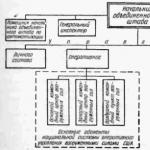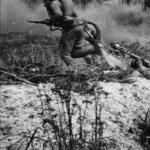The history of Bulgaria goes back thousands of years and begins its countdown in the distant Neolithic era, when nomadic agricultural tribes moved here from the territory of Asia Minor. In the course of its history, Bulgaria more than once became a coveted trophy of conquering neighbors and visited the Thracian Odrysian kingdom, Greek Macedonia, was included in the Roman Empire, and later in Byzantium, and in the 15th century. conquered by the Ottoman Empire.
Having experienced invasions, wars, conquests, Bulgaria, nevertheless, managed to revive, finding its own nation and gaining cultural and historical self-determination.
Odrysian kingdom
By the 6th c. BC e. the territory of Bulgaria was the outskirts Ancient Greece spread along the Black Sea coast. For several centuries, on the basis of the Indo-European tribes who came from the north, a tribe of Thracians was formed here, from whom Bulgaria received its first name - Thrace (Bulgarian Thrace). Over time, the Thracians became the main population in this territory and formed their own state - the Odrysian kingdom, which united Bulgaria, Romania, northern Greece and Turkey. The kingdom became the largest urban conglomerate in Europe at that time. The cities founded by the Thracians - Serdika (modern Sofia), Eumolpiada (modern Plovdiv) - still have not lost their significance. The Thracians were an extremely developed and rich civilization, the tools and household items they created were ahead of their time in many ways (skillful metal blades, exquisite gold jewelry, four-wheeled chariots, etc.). Many mythical creatures passed to the neighbors of the Greeks from the Thracians - the god Dionysus, the princess Europe, the hero Orpheus, etc. But in 341 BC. weakened by colonial wars, the Odrysian kingdom fell under the influence of Macedonia, and in 46 AD. became part of the Roman Empire and later, in 365, Byzantium.
First Bulgarian kingdom
The first Bulgarian kingdom arose in 681 with the arrival of the Asian nomads of the Bulgars on the territory of Thrace, who were forced to leave the steppes of Ukraine and southern Russia under the onslaught of the Khazars. The resulting alliance between the local Slavic population and the nomads proved to be very successful in campaigns against Byzantium and made it possible to expand the Bulgarian kingdom by the 9th century, including Macedonia and Albania. The Bulgarian kingdom became the first Slavic state in history, and in 863 the brothers Cyril and Methodius created Slavic alphabet- Cyrillic. The adoption of Christianity by Tsar Boris in 865 made it possible to erase the boundaries between the Slavs and the Bulgars and create a single ethnic group - the Bulgarians.
Second Bulgarian kingdom
From 1018 to 1186, the Bulgarian kingdom was again under the rule of Byzantium, and only the uprising of Asen, Peter and Kaloyan in 1187 allowed part of Bulgaria to secede. This is how the Second Bulgarian Kingdom was formed, which lasted until 1396. Constant raids on the Balkan Peninsula by the Ottoman Empire, which began as early as 1352, led to the fall of the Second Bulgarian Kingdom, which ceased to exist as an independent state for five long centuries.
Ottoman domination
As a result of the five hundred years of the Ottoman yoke, Bulgaria was completely ruined, the population decreased, and cities were destroyed. Already in the 15th century. all Bulgarian authorities ceased to exist, and the church lost its independence and became subordinate to the Patriarch of Constantinople.
The local Christian population was deprived of all rights and subjected to discrimination. Thus, Christians were forced to pay more taxes, did not have the right to carry weapons, every fifth son in the family was forced to serve in the Ottoman army. The Bulgarians raised uprisings more than once, wanting to stop the violence and oppression of Christians, but they were all brutally suppressed.
Bulgarian National Revival
In the 17th century the influence of the Ottoman Empire is weakening, and the country actually falls into anarchy: power is concentrated in the hands of the kurjali gangs that terrorized the country. At this time, the national movement is being revived, interest in the historical self-consciousness of the Bulgarian people is increasing, the formation of literary language, interest in their own culture is revived, the first schools, theaters appear, newspapers in Bulgarian begin to be printed, etc.
Princely semi-independence
Princely rule arose after the liberation of Bulgaria from Ottoman rule as a result of the defeat of Turkey in the war with Russia (1877 - 1878) and the country's independence in 1878. In honor of this key event in the history of Bulgaria, a majestic temple was erected in the capital of Sofia in 1908 Alexander Nevsky, which has become the hallmark of not only the city, but the entire state.
According to the Treaty of San Stefano, Bulgaria was granted the vast territory of the Balkan Peninsula, which included Macedonia and northern Greece. However, under pressure from the West, instead of gaining independence, Bulgaria received wide autonomy within the Ottoman Empire and a monarchical form of government headed by the German prince Alexander, the nephew of the Russian Tsar Alexander II. Nevertheless, Bulgaria managed to reunite, as a result of which the country gained Eastern Rumelia, part of Thrace and access to the Aegean Sea. But in this composition, Bulgaria was able to exist for a short 5 years (1913-1918), after the defeat in the First World War, the country lost most of its territory.
Third Bulgarian kingdom
The third Bulgarian kingdom covers the period from 1918 to 1946. Despite the agreement signed in 1937 on "indestructible peace and sincere and eternal friendship" with Yugoslavia, during the Second World War Bulgaria chooses Germany as its ally and introduces its troops into the territory of a neighboring country, thus supporting the German intervention. Tsar Boris's attempt to change course was unsuccessful. After his premature death, his 6-year-old son Simeon II, who later fled to Spain, takes the throne. In 1944, Soviet troops entered Bulgaria, and already in 1944-1945. the Bulgarian army begins to lead fighting against Germany and its allies in the Soviet armed forces. The further political course of Bulgaria was predetermined, in 1944 power passes to the communists under the leadership of Todor Zhivkov. In 1946, as a result of a referendum, the monarchy was liquidated, and Bulgaria proclaimed itself a republic headed by a prime minister.
Communist Bulgaria
During the communist regime, Bulgaria achieved high results in the development and modernization of industry, industrialization and collectivization. Agriculture, which allowed not only to provide the country with jobs, the latest technology, various goods and food products, but also to become a major exporter. The main consumer of Bulgarian exports was, of course, the USSR. Thus, industrial and textile goods, agricultural products, various canned food, tobacco products, alcoholic drinks(cognac, beer) and the first computers, and the Bulgarian resorts have become a popular holiday destination for Soviet citizens. However, in 1989, the wave of perestroika also reached Bulgaria, and after the fall of the Berlin Wall on November 9, 1989, the communist system was overthrown, and the permanent 78-year-old leader of the Communist Party, Todor Zhivkov, was sent under arrest and later stood trial on charges of corruption and bribery.
Modern Bulgaria
Modern Bulgaria has taken a course towards the West and European integration. Thus, on March 29, 2004, the country joined NATO, and on January 1, 2007, the European Union. Carrying out a comprehensive modernization, every year Bulgaria becomes more and more attractive for foreign tourists, a popular destination for summer and winter holidays. The widespread construction of new hotels, the development of infrastructure, the improvement of the quality of service and the diversification of services have allowed Bulgaria to repeatedly increase the tourist flow.
Today, the resorts of the country are modern complexes for a comfortable and eventful stay - an excellent hotel base, a variety of excursion routes, entertainment for every taste, alternative forms of tourism and much more. Attractive prices, low in comparison with other European resorts, make holidays here affordable for a wide range of tourists - from youth companies to families with children, while luxurious 5 * hotels meet the requirements of the most demanding guests.
Despite the fact that we associate Bulgaria more with beach holiday, the country has amazing opportunities for winter tourism. Excellent ski resorts - Bansko, Borovets, Pamporovo - fascinate with their beauty surrounding nature, modern slopes for both amateurs and professionals, excellent opportunities for the youngest ski fans, as well as for those who prefer snowboarding to skiing.
And if you still don't feel confident enough, experienced instructors are at your service. They are not only in short time will teach you all the necessary skills and abilities, but will also offer you communication on your mother tongue. No language barrier, common cultures and Orthodox traditions make visiting the resorts of Bulgaria even more enjoyable, come and see for yourself!
History in the Balkans is often not so much the study of past events as the study of national pride as well as myths and legends. Although there are no exceptional events in Bulgarian history, thanks to the invention of the Cyrillic alphabet, it has written documents that go back further than most other peoples of the region.
Thracians, Rome and Byzantium
Although there are traces of ancient settlements in Stara Zagora, the history of Bulgaria actually begins with the appearance of the Thracians in the Danubian plain around 1200 BC. e. The Thracians were the descendants of more ancient tribes, possibly migrated to this region from Mesopotamia. Archaeological evidence points to the existence of a connection between the Middle East and the Balkans through Black Sea at the end of the 2nd millennium BC. e.
The first written mention of the region comes from the Greeks, who began to visit Thrace in the 7th-6th centuries. BC e „gradually expanding its influence from the coast to the interior of the continent.
Although the Persian invasion in the VI century. BC e. temporarily disrupted the Hellenization of Thrace, Philip of Macedon conquered it in 346 BC. e. and began to colonize the conquered lands.
One of the new settlements was named after him (Philipopol, modern Plovdiv). Under Philip's son Alexander, the entire Thracian territory was completely open to Greek merchants and settlers, who over the next 200 years mixed with the Thracians and formed a separate ethnic group.
Rome conquered Thrace in 46 AD. e. and also embarked on a vigorous colonization, which led to the prosperity of the region. New cities were founded, including Serdika (Sofia), Augusta Trayana (Stara Zagora) and Durostorum (Silistria).
But the territory of the Roman Empire turned out to be overly stretched, and in 260 Dacia (modern Romania in the north) fell to the barbarians. Thrace was also subjected to constant barbarian attacks.
In 395, the Roman Empire was divided between Rome and Constantinople (Byzantium), but only during the reign of Emperor Justinian I the Great (527-565) did it manage to restore its power over the entire territory of modern Bulgaria.
Slavs
Although Justinian encouraged culture and education, fortified cities in the border areas and quickly settled Serdica and Philipopol large quantity Romans, the ongoing power vacuum in Dacia to the north threatened another invasion. The poorly organized tribes of Avars and Pechenegs did not advance far, but in the 5th century. a much larger tribe of Slavs invaded the Balkans.
Their origin is not entirely clear, but they are believed to have migrated from the region into present-day Poland and Ukraine and are the ancestors of today's Croats, Czechs, Serbs, Slovaks, Slovenes, Poles and Russians, as well as Bulgarians. Their onslaught was so strong that the Byzantine rulers were forced to recognize their right to settle in new lands.
First Bulgarian kingdom
Soon after the Slavs established power over Thrace, a new wave of settlers arrived, who were called Bulgarians. Excellent horsemen and cunning politicians, the Bulgarians were nevertheless characterized in Byzantine dispatches as "rude barbarians". They came from lands east of the Black Sea (perhaps from the Caspian steppes), but then moved along Black Sea coast and invaded Thrace through the Danube Delta. About 250,000 Bulgarians under the command of Khan Asparuh in 681 founded the first Bulgarian kingdom with its capital in Pliska.
The next 200 years of Bulgarian history are the subject of the most heated discussions. While most Bulgarian scholars believe that the tolerance of the Slavs and the enlightened rule of the Bulgarians contributed to the peaceful unification of the two peoples and the Slavs eventually recognized Bulgarian superiority, many Western historians are of a different opinion.
They argue that this precarious alliance was only sealed by political necessity, since the Bulgarians needed the support of the Slavs.
Simeon the Great
Of all the Bulgarian rulers, Simeon the Great (r. 893-927) remains the most revered. During his reign, Bulgaria conquered vast expanses of Europe and became the largest empire on the continent, stretching from Greece to Ukraine and from the Black to the Adriatic Sea. Simeon, who studied in Constantinople, understood the value good education and took advantage of the newly created Cyrillic alphabet to unite the Slavs. He was not only a warrior, but also a man who realized the importance of culture in the unification of the people. His patronizing attitude towards the arts gave impetus to the flourishing of Bulgarian literature, painting and sculpture.
However, Simeon over-expanded his possessions and did not leave an heir capable of replacing him. After his death, the Bulgarian empire collapsed, and the country again fell under the rule of Constantinople.
Second kingdom
By that time, Byzantium was in decline, and soon the Bulgarians jointly won the right to independence, although the territory of their country decreased in comparison with its area during the reign of Simeon. The brothers Peter and Asen led an uprising in Miziya and announced the creation of a new Bulgarian kingdom with its capital in Veliko Tarnovo.
Tsar Kaloyan, the son of Asen, expanded the borders of Bulgaria and re-captured Varna in 1204. In the same year, the knights of the Fourth Crusade sacked Constantinople and announced the creation of the Holy Eastern Empire.
However, Kaloyan soon defeated the crusaders and set about creating his own empire. He was killed during a palace coup, and Tsar Boris took his place for a short time, but in 1218 he was replaced by the much more gifted Tsar Asen II. The expansion resumed, and Bulgaria again reached the same size as under Tsar Simeon, although this did not last long.
Ottoman Rule and the National Revival
The defeat inflicted on the Serbs by the Ottoman Turks in the Battle of Kosovo in 1389 decided the fate of the Balkan Peninsula.
In 1393, the Turks captured Veliko Tarnovo, and three years later the whole of Bulgaria became part of the Ottoman Empire. This period, which lasted almost 500 years, became known as the Ottoman yoke.
The list of atrocities committed by the Turks during their reign can be continued for a very long time. At least half of the Bulgarian population was slaughtered or starved to death in the first 50 years after the arrival of the Turks, and many of the survivors had to convert to Islam.
Arabic replaced Bulgarian as the official language used at court, while Greek became the ecclesiastical language.
From time to time there were uprisings against the Turks, including in Veliko Tarnovo in 1598 and 1686, but they did not bring tangible changes. This was the time of the dominion of the Greek clergy, appointed by the Turks to lead the Bulgarian Church, which forced many intellectuals to take measures to preserve the Bulgarian language and national history. Many of them, such as Bogdan Bakshev (Archbishop of Sofia), had to publish their works outside of Bulgaria.
Bakshev's "History of Bulgaria" made a splash after its publication in the 17th century, as did Paisios Hilendarsky's "Slavonic-Bulgarian History" (1762). Both works contributed to the revival of Bulgarian nationalism in the 19th century; this period is known as the era of national revival. The economy also played a role in this process, as more and more wealthy Bulgarians were able to travel and trade in regions not controlled by Turkey, and returned with liberal ideas that undermined the foundations of power of the Bulgarian rulers.
Fight for independence
In 1859, Romania got rid of the Turks with the help of Russia. Ten years later, the Bulgarian Revolutionary Committee (BRK) was established in Bucharest and for the first time united disparate nationalist groups under a single leader, Basil Levski. After the capture and execution of Levski in 1873, the movement had a martyr, and in April 1876 it was ready to raise an uprising against the Turks.
During the April uprising, more than 30,000 rebels died, which aroused great sympathy for them from Russia and the Western powers, who until then persuaded the Turks to give Bulgaria, if not independence, then at least autonomy. In 1877, Russia declared war on Turkey, and after a year of heavy fighting, the Ottoman Empire was forced to sign the Treaty of San Stefano, humiliating for it. On March 3, 1878 Bulgaria declared its independence.
Third Bulgarian kingdom
Other great powers - Britain, France and Austria-Hungary - were dissatisfied with this treaty, and the Berlin Congress in July 1878 revised many of its points. Macedonia was completely returned to Turkey, and the rest of the country was divided into two provinces, which had to pay an annual tribute to the Turkish sultan, while maintaining formal independence.
Turning to Europe in search of a new monarch, the Bulgarian Assembly elected Alexander Battenberg Prince, who repaid this service by creating an aristocratic state where he wielded considerable power. Descendants retained a grateful memory of him, because in 1885 he managed to unite the divided country against the will of France and Britain. After his death, Ferdinand of Saxe-Coburg became the new prince in 1887, who changed his title from princely to royal in 1908. In the same year, Bulgaria again declared full independence from Turkey; by this time the Ottoman Empire was on the verge of collapse, so no one objected.
Balkan Wars and Difficult 1920s
Bulgaria entered into an alliance with Serbia and Greece with the common intention of expelling the Turks from the Balkan Peninsula forever. During the First Balkan War in 1912, they achieved this goal and almost captured Istanbul. But in 1913, the victors quarreled among themselves over trophies, and Bulgaria was defeated by its recent allies. As a result, Macedonia fell away from Serbia, and the Dobruja region separated from Romania.
During the First World War, the vast majority of the population sided with Russia and its allies, while the government (the sworn enemy of Serbia, Russia's ally) supported the Axis powers. This led to a bloody massacre and defeat in September 1918, after which deserter soldiers attempted a coup d'état, which was unsuccessful, although it forced Ferdinand to abdicate in favor of his son Boris III.
Macedonian nationalists from the Internal Macedonian Revolutionary Organization (IMRO) were a thorn in the side of the Bulgarian government in the early 1920s. VMRO, hostile to the newly created Yugoslavia, sabotaged the policies of Prime Minister Alexander Stamboliysky, who sought peaceful coexistence with that country.
With the help of army officers who were also hostile to the prime minister, the nationalists staged a putsch in 1923, killing Stamboliysky and creating an unstable coalition that managed to cling to power until 1935, while Boris III remained the formal head of state.
In November of this year, Boris, tired of political intrigues, dissolved the coalition and established an absolute monarchy.
The Second World War
Bulgaria sided with Germany for the second time in 1941, although in fact the country took a neutral position, as it refused to send troops to the Russian front, despite protests from the German side. However, German troops were still on the territory of the country during the hostilities.
In 1944, when the scales tipped the other way and the Red Army entered the Balkan Peninsula, the Bulgarians quickly realized which way the wind was blowing and crossed over on September 9, 1944; this date was until recently celebrated as Liberation Day.
Communism
After the end of the war, Bulgaria, like other countries of Eastern Europe, could not avoid the establishment of a communist regime.
Bulgarian communists who fled to Moscow in the 1920s and survived Stalin's purges returned, led by Georgy Dimitrov, who had been the leader of the Comintern in the 1930s.
Dimitrov, who became prime minister in the puppet elections of 1946, immediately held in the communist parliament new constitution(based on the Constitution of the USSR), which abolished the monarchy and established the People's Republic of Bulgaria.
After Dimitrov's death in 1949, Vylko Chervenkov took his place, getting rid of all real or potential opponents, most of whom died in camps near the city of Belene on the Danube. Chervenkov fell out of favor with the Kremlin after Stalin's death in 1953, and was succeeded by Todor Zhivkov, who remained autocratic until 1989. Zhivkov's reign was an era of economic stagnation and absolute obedience to the will of Soviet leaders.
Return to democracy
It seemed that 1989, marked by revolutions and political changes in Eastern Europe, bypassed Bulgaria, and in November Zhivkov's power seemed as strong as before. However, reformers soon communist party forced him to resign, and he was arrested on charges of fraud.
Reformers responsible for small but important changes in the economy since the mid-1980s, elected Pyotr Mladenov as head of the Central Committee and promised multi-party elections in June 1990. Since then, Bulgaria has struggled to transition to a market economy, but has maintained political stability.
Simeon of Saxe-Coburg, who was briefly tsar in the 1940s, secured Bulgaria's accession to NATO, but could not cope with rising corruption.
In 2005, Sergei Stanishev replaced him as prime minister. Although this politician adhered to leftist views, his party participated in the formation of the coalition government that achieved Bulgaria's accession to the EU in 2007.
Since 2009, Boyko Borisov, a populist and former mayor of Sofia, has been prime minister under whom the country has made notable economic progress.
Bulgaria is a country with a history full of drama. The Bulgarian people have stubbornly defended dignity and freedom throughout their history. Bulgarians have a complex origin. The Bulgarian ethnos was based on three components: Thracians, Slavs and Proto-Bulgarians.
Among the Thracian tribes in the second half of the 1st millennium BC. was in the process of forming a state. Their culture had much in common with the culture of the peoples of the Mediterranean. Part of the Thracians underwent Hellenization, other groups were Romanized after the Roman conquest. In the VI-VII centuries. Slavic tribes who migrated from across the Danube settled on the Balkan Peninsula.
In the first half of the 7th c. a tribal union was formed - the first Slavic state on the peninsula. The relationship between the Slavs and the Thracians was peaceful. There was a gradual dissolution of a significant part of the Thracians in the Slavic ethnic community.
In the second half of the 7th c. from beyond the Danube came the Proto-Bulgarians - part of the Turkic-speaking people. The struggle against a common enemy - Byzantium - brought the Slavs and Proto-Bulgarians closer. In 680, in the north-east of modern Bulgaria, the Slavic-Bulgarian state of Bulgaria was formed, which was recognized by Byzantium. As the borders of the Bulgarian state expanded, more and more Slavic tribes were included in the Bulgarian nationality. In 865, the Christian religion was adopted, which became the final stage in the rallying of different ethnic groups, and Slavic writing was introduced.
In the XI century. Bulgaria was conquered by Byzantium, but in 1186 the Bulgarian people regained their independence.
By the end of the XIV century. Bulgaria's successful development was interrupted by the Ottoman conquest. For almost five centuries, the Bulgarians were subjected to the brutal oppression of the Ottoman Empire. During this period, there was a forced imposition of Islam.
In the second half of the XVIII century. The Renaissance began in Bulgaria. Industry developed, cities began to grow, economic ties. At the end of the 18th-19th centuries. an economic basis was formed for the further unity of the Bulgarian people. The historical process led to the formation of the Bulgarian nation, and this became a force in the national liberation movement. This movement was directed not only against the Ottoman oppression, but also against the Greek bourgeoisie, which pressed the young Bulgarian economy, planted Greek language school.
Bulgaria was liberated from the oppression of the Ottoman Empire during the Russian-Turkish war of 1877-1878, with the active participation of the Bulgarian militias.
In 1885, the reunification of Northern and Southern Bulgaria took place. This accelerated the growth of the economy, however, having embarked on the path of capitalist development as a backward country, Bulgaria was unable to maintain economic independence. The largest investments in its industry were made by Austria-Hungary and. Therefore, in the First World War, she took the side of the Austro-German bloc, and this further worsened the difficult economic situation of the country.
In 1923, a monarcho-fascist dictatorship was established in the country. These are the years of terror and lawlessness. In 1941 Bulgaria officially joined the fascist camp. And in 1944 Soviet troops with the support of the Bulgarian masses, they dealt the main blow to fascism. People's democratic power was established in the country.
The people's power carried out fundamental changes in all areas of the country's life. An agrarian revolution was carried out, private banks, factories, etc. were nationalized.
In 1948, as a result of political and socio-economic transformations, the prerequisites for building a socialist society in Bulgaria were created.
Great political and socio-economic transformations took place in the 90s. on the Balkan Peninsula and throughout Europe. They are connected with the collapse of the USSR; the CMEA and Warsaw Pact organizations, which included Bulgaria, collapsed.
In 1989, movements began towards the democratization of social and political life, which led to a change in the country's policy, the political system, and to fundamental changes in the economy.
Bulgaria belongs to the group of countries with a slow pace of reforms. The economic downturn is observed in all sectors of the economy. The transition to a market development model led to a change in the forms of ownership. A law was adopted on private ownership of land, means of production, and real estate. Bulgaria had close economic ties with the USSR, but after its collapse in 1991, these ties have undergone major changes. Currently, the country is establishing ties with European states that were part of the USSR.
You need to know the history of the country where you live (or where you are going to move) at least in in general terms. Here we will tell you in general terms - from the very beginning.
The territory of Bulgaria has been inhabited since the Neolithic times. The remains of the settlements of that time are scattered throughout the country. For example, well-preserved primitive buildings and burials were found on the island.
Ancient history and emergence of Bulgaria
People have lived on the territory of Bulgaria since the Neolithic period. Many finds of that time were made on Lake Durankulak. Later, the Scythians and Thracians came to the territory of Bulgaria. Little is known about the former, but the Thracians left a big mark on Bulgarian culture. Thanks to their habit of sending the dead on their last journey fully equipped, putting clothes, jewelry, weapons, vessels with wine, even horses and faithful wives into the tombs, archaeologists of later times managed to learn a lot about Thracian culture. Of course, the lion's share of the tombs was looted, but some still survived - they are the ones who judge how people lived on the Bulgarian territory in those days. Periodically, during the construction of houses or other circumstances, new tombs with treasures are discovered - such finds are covered in the news.
By the way, the found treasures belong to the state. Treasures end up in museums, and we don’t know if treasure hunters get something other than heartfelt gratitude for this.
Many Thracian tombs have been discovered on the territory of the country. The Thracians (Thracians, if in Bulgarian) ruled for quite a long time, and later the ancestors of the Bulgarians and Slavs came to the country. Now geneticists and historians are arguing whether the Slavs had anything to do with the emergence of the modern Bulgarian people, or just passed by (that is, they just lived nearby). The truth has not yet been established. For many Bulgarians, this question is fundamental, why is not clear.
In 635, Khan (Kan) Kubrat united the Proto-Bulgarian tribes into one state, which today is called Old Great Bulgaria. It existed until the death of its founder. But one of the sons of Kubrat - Khan Asparuh - created a new state at the mouth of the Danube with the capital in the city. This happened in 681.
Rise and decline
The Bulgarians entered into an alliance with the Slavs and won a good piece of land. After that, the new state was recognized by the Byzantine ruler Constantine V, who concluded a peace treaty with Asparukh.
After the death of Asparukh, his son Khan Tervel took the throne. Under this ruler, who became the first foreigner in history to receive the title of Caesar from the Byzantine emperor, the Madara horseman was built - a huge bas-relief, which many, judging by the polls, consider the main symbol of Bulgaria.
Khan Asparuh founded the First Bulgarian Kingdom in 681. The next rulers continued what they had begun - they settled new lands, reformed the management system, wrote laws (very strict, by the way). Large-scale construction was actively carried out - its scope leaves no doubt that the state was very rich at that time.
The first Bulgarian prince was Boris, later canonized. He ascended the throne in 852, when Bulgaria had already become a large and strong country. His reign began not too rosy - with military defeats and the threat of famine. Boris decided to baptize - of course, not only his own, but also all his subjects. This step made it possible to rally the peoples living in the country, to achieve territorial concessions from Byzantium and to receive support from neighboring states. It cannot be said that the process went smoothly, but the prince brutally suppressed the uprisings of those who did not want to be baptized, and Bulgaria became a Christian country.
In 855 was created Slavic alphabet- verb. Its creators were Byzantine scientists Cyril and Methodius, who at that time were in Asia Minor in a monastery. The novelty could not boast of particular popularity - the rulers of the states did not at all approve of the activities of the enlighteners who carried the new script to people. Prince Boris was an exception. He welcomed the disciples of Cyril and Methodius in every possible way, supporting the introduction of the Glagolitic alphabet, and later the Cyrillic alphabet. Thanks to this, he received the status of a great educator, Bulgaria turned into a European-scale cultural center, and Byzantine scientists are included in the list of the greatest Bulgarians, although they were born and lived most of their lives outside the country.
The ancient capital of Bulgaria - Pliska In 889, Boris retired, and in 893 he briefly returned to the throne to overthrow his own heir, who planned to abandon Christianity. Then Simeon, a more obedient son, ascended the throne, and the capital was moved to. Divine services in churches from that moment began to be held in the Bulgarian language.
The flowering of the Bulgarian state continued. The people united, rallied and enlightened, the country annexed more and more new territories and became more and more powerful. In 917, the Battle of Aheloy takes place, when Bulgarian troops stampede a strong Byzantine army.
But after the heyday comes the decline: it becomes more and more difficult for the kings to cope with a large state. In 977, the capital was transferred to Ohrid (today it is the territory of Macedonia). Periodically, wars break out with Byzantium. One of the battles leads to the death of the king. The legend says that the Byzantines killed thousands of Bulgarian soldiers in 1014, and gouged out the eyes of 14 or 15 thousand captured. When King Samuel saw what had been done to his people, he died of a broken heart. The Bulgarian kingdom lasted a little longer: in 1018, the Byzantines captured the remaining territories, killed the king, the successor of Samuil. This is the end of the history of the First Bulgarian Kingdom.
Bulgaria is very ancient state. When 6 thousand years ago Europe traveled nomadic tribes, on its territory there was a permanent city - Plovdiv. In 632, the Bulgarian tribes founded the first ethnic state Great Bulgaria (Bulgaria) under the leadership of Khan Kubrat, whose borders differed significantly from modern ones: it occupied the entire southeastern part of present-day Ukraine, Crimean peninsula, part Rostov region and Krasnodar region Russian Federation. The capital of Great Bulgaria was the city of Fanagoriya on the shores of the Kerch Strait, the ruins of which today can be found near the village of Sennaya in the Krasnodar Territory.
Great Bulgaria was not destined to last long. Due to the fragmentation of the tribes, the state soon collapsed, and its territories were included in the Khazar Khaganate. Part of the militant Proto-Bulgarians under the leadership of Khan Asparuh responded to the call of the Slavic tribes to fight against Byzantium and went to the Balkans. In 681, the united Bulgarian-Slavic army dealt a crushing blow to Byzantium at the mouth of the Danube. The latter was forced not only to cede a significant part of the Balkan Peninsula, but also pledged to pay tribute. This event is the starting point for the existence of the First Bulgarian Khanate.
In 863, the First Bulgarian Khanate adopted Christianity, after which it was renamed the kingdom and existed until 1018, until it was re-conquered. byzantine empire. In 1187, as a result of a popular uprising, the Bulgarian lands were liberated from imperial oppression and united into the Second Bulgarian Kingdom.
In the 15th century the Bulgarian lands were completely annexed by the Turks. A long and painful period of oppression of the Bulgarian people began against the backdrop of religious differences. The Sultan's vassals actively destroyed the cultural heritage of the indigenous people of the Balkans, established unfairly high taxes and legal norms designed to infringe on the rights of the Bulgarians. For example, Christian houses were forbidden to be built higher than Muslim dwellings. Such oppression caused a surge of unprecedented patriotism among the Bulgarians: many uprisings were raised, which, although they were not crowned with success, remained forever a symbol of the unity and love of freedom of the Bulgarian people.
In the 18-19 centuries, Bulgaria tried with varying success to get out of the influence imposed by Turkey. On September 22, 1908, the Bulgarian prince Ferdinand I proclaimed the creation of the Third Bulgarian Kingdom.
On September 15, 1946, following a national referendum, monarchical rule gave way to democracy: the creation of People's Republic Bulgaria. The second half of the 20th century was characterized by close cooperation between Bulgaria and Soviet Union which determined the socialist path of its development. In 1990, the state acquired the modern name of the Republic of Bulgaria.
Bookmark this page for yourself:

















